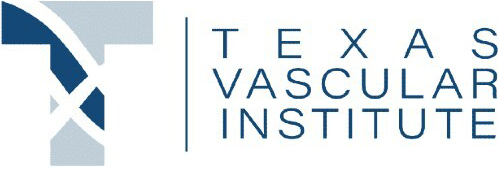By: Dr. Dev Batra | 01.30.23

Background and Motivation
As we discussed in our last post, deep vein thrombosis (DVT) results from a blood clot in one or more of the deep veins. It is a potentially life-threatening condition that affects up to 0.1% of the population annually (about 1 in 1000 individuals). As such, the medical community has sought long and hard to understand the risk factors – both modifiable and nonmodifiable – for DVT. Many risk factors are well-documented,¹ but others may remain undiscovered. It is well-documented that around 20% of the adult population is living with some degree of varicose veins.²⁻³
Until recently, there existed limited observational data examining the risk of DVT in patients with varicose veins. The few studies that had been conducted were either cross-sectional (all data collected at one distinct time point) or case-control (finding patients with and without DVT, and analyzing their medical history for all risk factors – not specifically focused on varicose veins). The studies showed anywhere from a 2 to 10-fold increased risk of deep vein thrombosis in patients with varicose veins.⁴⁻⁶ These types of observational research tend to precede large cohort studies, which will hone in on one specific risk factor. In our case, that one specific risk factor is a previous diagnosis of varicose veins.
New Evidence – Over 400,000 Taiwanese Patients
In February 2018, the Journal of the American Medical Association published a massive retrospective cohort study using claims data from Taiwan’s National Health Insurance Program, titled Association of Varicose Veins With Incident Venous Thromboembolism and Peripheral Artery Disease.⁷ Over 200,000 patients aged 20 years and older with varicose veins were studied from January 2001 through December 2013, as were an equal number of “control” patients (without varicose veins). The researchers used a nifty statistical method called “propensity matching” to ensure the control group was as similar as possible to the varicose vein patients, in order to avoid confounding. All of these patients were tracked for nearly a decade, and events of DVT, as well as PE (Pulmonary Embolism) and PAD (peripheral arterial disease), were documented.

Findings – Increased Risk of DVT
There were over 10,360 cases of DVT in the varicose vein group during the follow-up period, compared to the 1,980 cases in the propensity-matched control group (who were initially free of varicose veins). In the time-dependent risk model, this translated to a 5.3-fold increased risk of DVT in patients with varicose veins, relative to those without varicose veins (Hazard Ratio = 5.3).⁷ This can also be interpreted as a 430% increased risk of DVT for patients who have varicose veins. Further data analysis revealed that the risk of DVT was even higher within the first year of varicose vein diagnosis, than during subsequent years.⁷
The authors discuss several mechanisms through which deep vein thrombosis may be caused in patients with varicose veins, but the central theme underlying their proposed mechanisms is increased venous pressure and subsequent inflammation, and aggregation of several types of white blood cells known to induce blood clotting. The increased venous pressure they are referring to results from failure of the valves in the superficial veins. This may lead to reflux (the backward flow of blood) and stasis (stagnant blood) in the deep veins, where clots may form.⁷

Takeaways for Providers
As healthcare professionals who seek to keep our patients as informed as possible when it comes to their health, this article provides some additional input when discussing varicose vein management with our patients. This article does not provide proof of a causal relationship between varicose veins and DVT due to the limitations of its retrospective, claims-based design. Likewise, by no means should the takeaway from these findings be “treat varicose veins or your patients will develop DVT”. However, the findings in this study were significant and deserve to enter into our conversations with patients who may already be at elevated risk of DVT due to the presence of other modifiable or nonmodifiable DVT risk factors including thrombophilia, recent trauma, immobilization, sedentary lifestyle, pregnancy or postpartum, malignancy, obesity, family history of VTE, older age ( > 60), and smoking.¹
Takeaways for Patients
Don’t stress! Medical knowledge is always evolving. We do not have a perfect way to determine the truth when it comes to research questions like these. This is simply because we can’t take a group of healthy volunteers, “give” half of them varicose veins, and compare them to the half without varicose veins over time. Thus, we are limited to observational studies such as the one we discussed in this article, and those that preceded it. Discuss your risk of DVT with your provider when navigating your treatment options for varicose veins, but know that overall, DVT is a rare condition.
About the Author
Dr. Dev Batra, M.D. is a vein specialist and founding partner of Texas Vascular Institute. Holding board certifications in radiology and vascular & interventional radiology, he is well-versed in vein issues and has been voted one of D-Magazine’s best doctors in Dallas for three years running.
This blog post was written with research and editorial assistance from OnChart™.
References
[1] NHLBI Health Topics – Deep Vein Thrombosis. Risk Factors of DVT. https://www.nhlbi.nih.gov/health-topics/venous-thromboembolism
[2] Michael H. Criqui, Maritess Jamosmos, Arnost Fronek, Julie O. Denenberg, R., & D. Langer, John Bergan, and B. A. G. (2003). Chronic Venous Disease in an Ethnically Diverse Population The San Diego Population Study. American Journal of Epidemiology, 76(October 2009), 211–220.
[3] Chiesa, R., Marone, E. M., Limoni, C., Volonté, M., Schaefer, E., & Petrini, O. (2005). Chronic venous insufficiency in Italy: The 24-cities Cohort study. European Journal of Vascular and Endovascular Surgery, 30(4), 422–429.
[4] Engbers MJ, Karasu A, Blom JW, Cushman M, Rosendaal FR, van Hylckama Vlieg A. Clinical features of venous insufficiency and the risk of venous thrombosis in older people. Br J Haematol. 2015;171(3):417-423.
[5] Müller-BühlU, LeutgebR, EngeserP, Achankeng EN, Szecsenyi J, Laux G. Varicose veins are a risk factor for deep venous thrombosis in general practice patients. Vasa. 2012;41(5):360-365.
[6] Heit JA, Silverstein MD, Mohr DN, Petterson TM, O’Fallon WM, Melton LJ. Risk Factors for Deep Vein Thrombosis and Pulmonary Embolism, A Population-Based Case-Control Study. Arch Intern Med. 2000;160(6):809–815.
[7] Chang S, Huang Y, Lee M, Hu S, Hsiao Y, Chang S, Chang CJ, Chen P. Association of Varicose Veins With Incident Venous Thromboembolism and Peripheral Artery Disease. JAMA. 2018;319(8):807–817.
Medical Disclaimer
The Materials available in the Texas Vascular Institute blog are for informational and educational purposes only and are not a substitute for the professional judgment of a healthcare professional in diagnosing and treating patients.
Read more blogs
Varicose Veins in Hurst: Expert Care at Your Doorstep
At Texas Vascular Institute (TVI), we empathize with the discomfort and worry caused by varicose veins. That's why we're here in Hurst, providing cutting-edge treatments that are customized to address your unique needs. With our team of experts wielding extensive knowledge and experience, we promise to provide the utmost care in a warm and compassionate atmosphere. Let us help you find relief and regain your confidence!
Varicose Veins in Dallas: Quality Care You Can Trust
Our exceptional team of vascular specialists are true leaders in their field, armed with years of invaluable experience. Harnessing the power of cutting-edge advancements in vein treatment, they've transformed the lives of numerous patients, liberating them from the pain and unsightly burden of varicose veins. When you choose TVI, you're opting for unparalleled care and unwavering commitment to your varicose vein needs in Dallas.
How to Get Rid of Varicose Veins in Hurst?
The causes and risk factors of varicose veins vary from genetics to age, pregnancy, obesity, and prolonged standing or sitting, among other factors. Some typical signs and possible issues include discomfort, inflammation, irritation, hemorrhage, dermatological alterations, sores, and thrombosis. You may want to seek medical attention if you experience any of the following symptoms or complications.
WHAT OUR PATIENTS
have to say
Texas Vascular Institute always appreciates feedback from our valued patients. To date, we’re thrilled to have collected 378 reviews with an average rating of 5 out of 5 stars. Please read what others are saying about Texas Vascular Institute below, and as always, we would love to collect your feedback.
Leave a Review
Amazing Practice
I'm very particular with my Healthcare and tend to be cautious with referrals to specialists. This office is amazing from the first point of contact. Their staff are friendly, professional and highly knowledgeable. Then the Dr is just as amazing as his staff, absolutely brilliant. Office manager Jessica has this office running like a well oiled machine and does so with a smile, an air of confidence, kindness and professionalism. Love this practice!!
- Richard G.

Beyond Thankful
Dr Batra and his staff are amazing! We are so grateful to have found him. Everyone is so kind and so caring and Dr Batra explains everything so well and does procedures with excellence. Beyond thankful to be under their care!!!
- Bitsy P.

Gold Standard
This is a gold standard for how a medical practice should be run. I was promptly seen at my scheduled time, my ultrasound was thorough and I received plenty of attention and care from the staff and Dr.Batra.
- Weronika L.
INSURANCE
We accept most major insurance plans. Please contact the medical office for all insurance related questions.









3500 Oak Lawn Ave, #760
Dallas, TX 75219
For Appointments: 972-798-4710
General Inquiries: 972-646-8346

809 West Harwood Rd, Suite 101,
Hurst, TX 76054
For Appointments: 972-798-4710
General Inquiries: 972-646-8346

